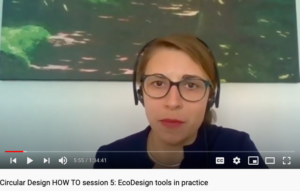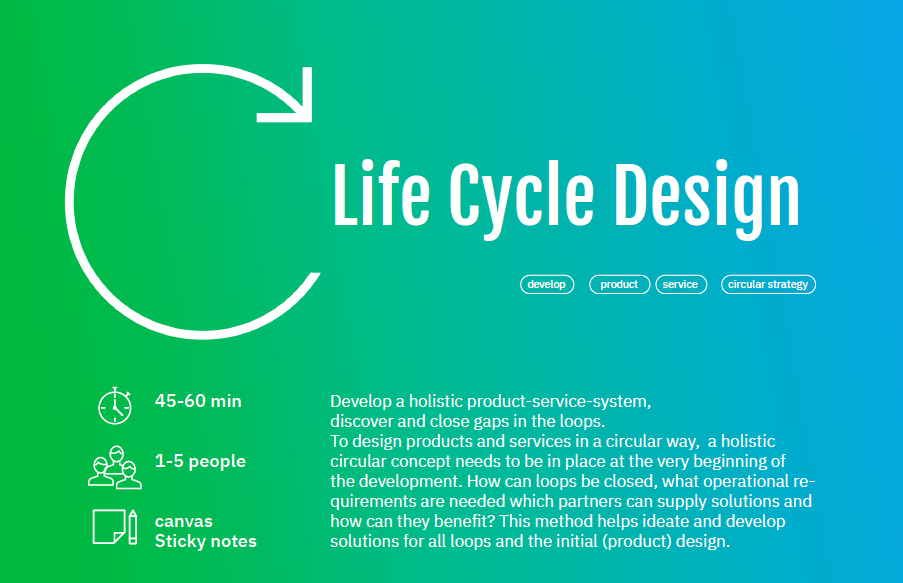Estonian Circular Design in New York City
Discover the Soul of Estonian Design: Tradition Meets the Future in Circularity and Digital Innovation
Discover the Soul of Estonian Design: Tradition Meets the Future in Circularity and Digital Innovation
Nestled in the heart of Northern Europe, Estonia has emerged as a powerhouse in the global design and digital innovation scene. Join us at Upmade in Estonia to learn how the of traditional core of minimalist philosophies of Estonian design became the cutting edge of sustainability and digital innovation.
This exclusive event is taking place for the first time in New York City, with top design leaders from Estonia in attendance who will share and discuss the roots of Estonian Design, its unique aesthetics, and its contemporary successes. You will find out why this tiny country is now recognized as having the “most unicorns per capita in Europe” and “the most start-ups per capita in Europe,” and how it became the world’s first 100% digitally transformed society. You will hear the backstory of the startup culture where products like Skype were born, and how Estonia became the world leader in digital governance, its innovative e-Residency program, and how this is revolutionizing the creative and entrepreneurial landscape.
Woola
Myceen
Reet Aus
HYTI
kelpman textile
johanna ulfsak
Piret Loog
LUKS
LAURASAKS
Cervo Volante
SILE LUIK
K i l l u d
Heiter X
NüüD
Studio Raili Keiv
Elize Hiiop Jewellery
Tarmo Luisk
LUM
Filaret
By Urmas Lüüs
Karlotta
Leonardo Design
Olustvere puidukoda / Mirjam ja Markus Pärnamets
Ideeklaas
Hannah Segerkrantz / Kiukivi
Margit Terasmees
IKIGI
Kärt Summatavet
Riina O
RAIKU Bio Packaging
Andres Ansper
DiMa Estonian Academy of Arts (Sandra Luks, Argo Tamm, Cärol Ott, Reet Aus)
HUUM
JALG
Krista Lehari Jewellery
Kristel Kuslapuu
SJX by Juhan Soomets
Maria Rästa Design
Arro Porcelain
Elmet Treier design
Read more: https://www.facebook.com/events/7407652605984775/?active_tab=discussion

Check out the winners of the German Ecodesign Award 2022
The winners of the German Ecodesign Award 2022 have been announced. Out of 295 submissions and 28 nominees, 14 projects were honoured.
The award-winning projects include intelligently designed lights, a seasonal calendar for green electricity, precast foundations for wind turbines, a deposit chair as well as advanced concepts for the transformation of the clothing industry and the data-based rewetting of peatlands. Below we have highlighted a selection of the winning projects. You can see the full winners line-up here.
Steelcase Flex Perch Stool
The Steelcase Flex Perch Stool is the world’s first piece of furniture to be made with plastic from BASF’s ChemCycling™ project. This technology creates a new type of raw material from a waste stream deriving from electronics production. This reduces both waste and the use of fossil resources. The standing stool is space-saving, flexible to use and durable and can be fully recycled at the end of its life cycle.
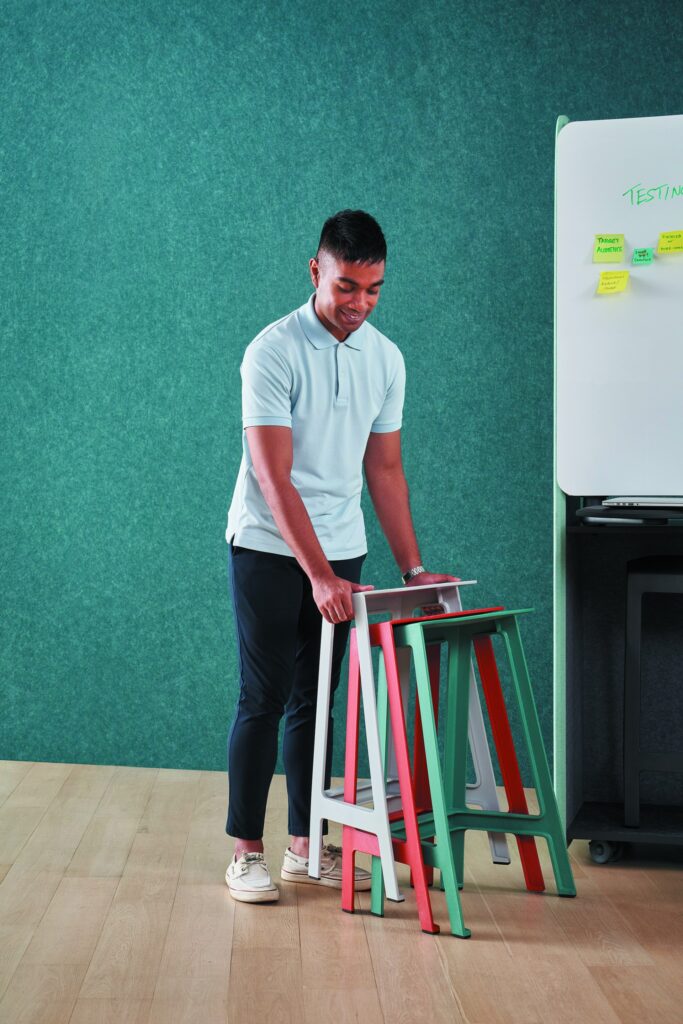
HIIVE
HIIVE provides honeybees with a near-natural, species-appropriate home. Unlike conventional hives, which are primarily designed for maximum honey extraction, HIIVE also addresses the needs of the animals. The design replicates the microclimate of a tree cavity, the bees’ natural habitat. With its special characteristics, it has a positive effect on the health of the bees. HIIVE is made exclusively from a mix of recycled and natural materials, with a modular design that ensures easy reparability.
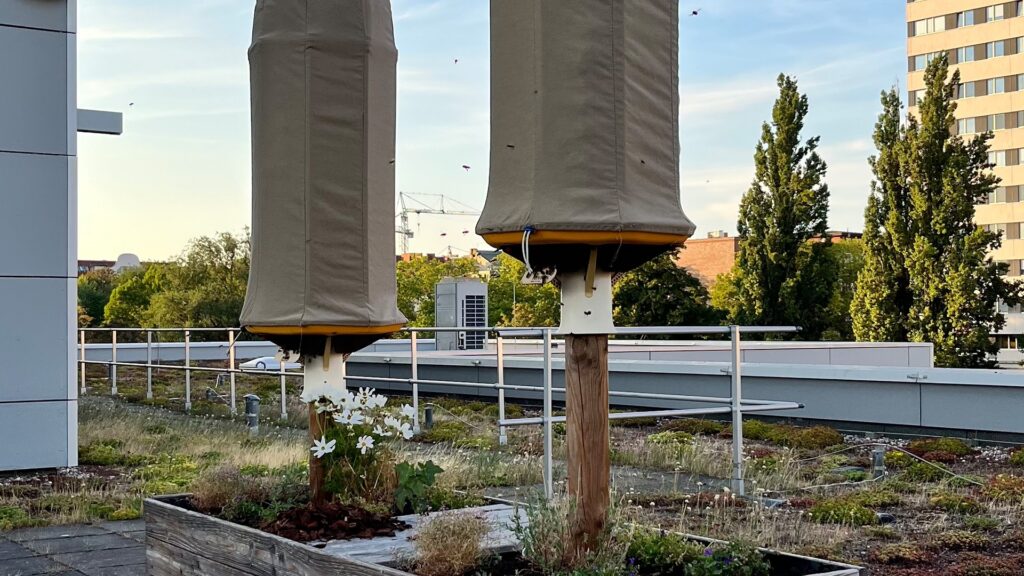
5 TONS
The construction industry is one of the most resource-intensive sectors of all. Alongside high levels of resource extraction and the issue of scarcity, there are also challenges with regard to disposal. 5 TONS is a recyclable mineral solid made using brick dust from broken masonry as well as recycled aggregate from mineral construction waste. As such, 5 TONS represents an alleviation in the use of primary raw materials and for landfills. A dry stacking system for masonry blocks has been developed on the basis of the material, and tanks to the shape of the brick, it is possible to do entirely without mortar. Cut markings and defined breaking points permit a flexible configuration of brickwork.
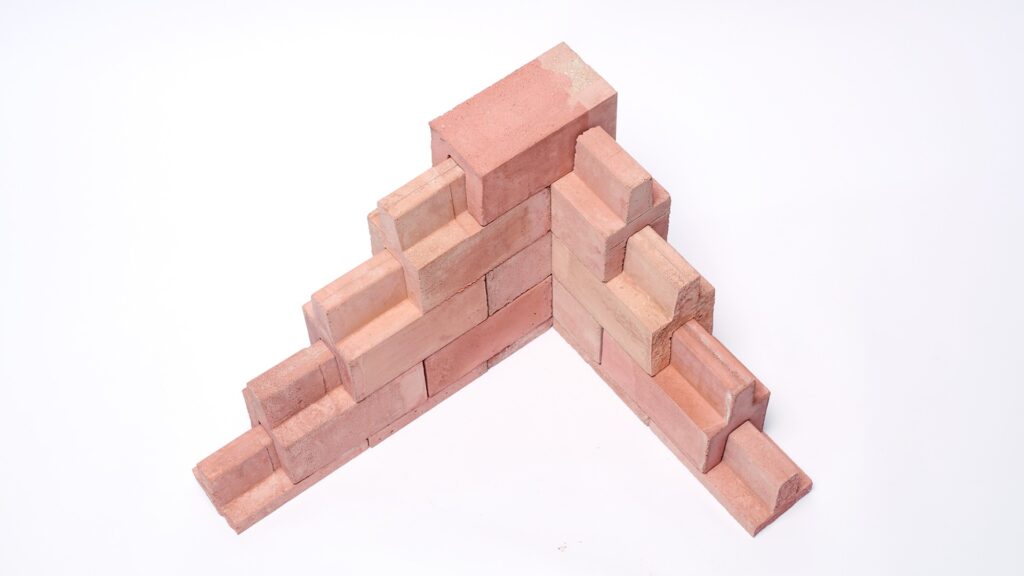
V-Locker Smart Bike Parking System
Climate-friendly mobility with bicycles and e-bikes is dependent on suitable infrastructure. Using the automated V-Locker Smart Bike Parking System, which includes a digital operating and service platform, it is possible to safely store up to 60 bikes in a single car parking space. Thanks to individual facade design, the modular towers blend into the urban environment. Greenery, glass, solar or wood cladding are all possible. Assembly and disassembly all require minimal effort. Operation via smartphone app is intuitive and straightforward. Several installations are already in place in Germany and Switzerland, and there are more are in the planning phase.
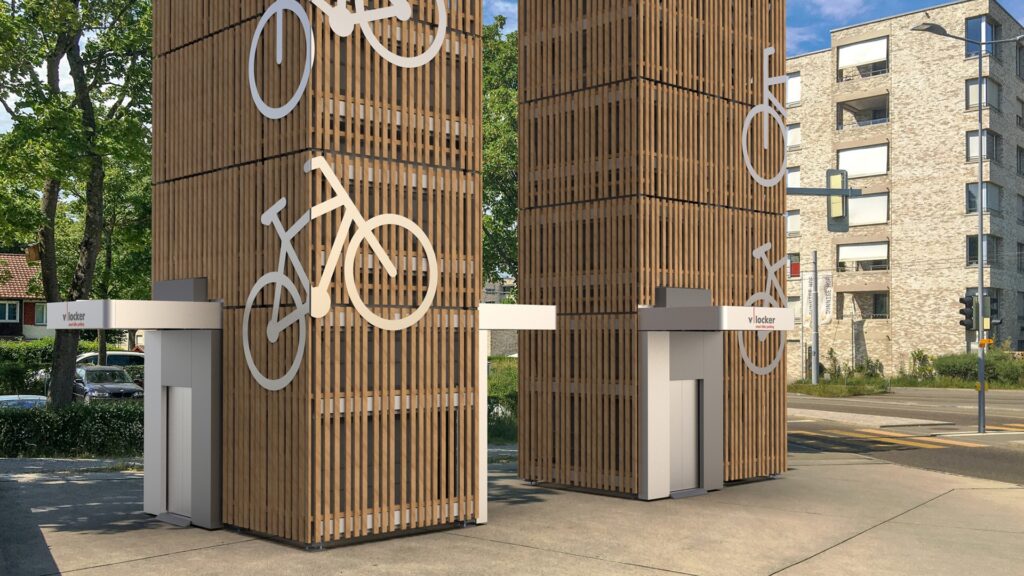
The next call for entries for the German Ecodesign Award starts on January 23, 2023 for new outstandingly designed, environmentally compatible and future-oriented projects.
//
News source & images: bundespreis-ecodesign.de

EcoDesign Circle project wrap-up
A shift towards more sustainable production and consumption patterns is an opportunity also for other sectors to reduce their environmental footprint and to meet the growing demands of their customers. But which springboard to use in order to get more circular, reduce waste and to increase the product’s lifespan? The answer lies in changing the design strategies of companies.
Ecodesign – the springboard to circularity
“Good design is serving the people, the economy and the environment at the same time,” says Jutta Brinkschulte from the International Design Center Berlin (IDZ). Advising companies on designing better products and services is her bread and butter. This naturally includes ecological design for all stages of the product life cycle. But it was teaming up with experts on circularity in the Interreg projects EcoDesign Circle and EcoDesign Circle 4.0 that enabled the center to widen up its circular offer.
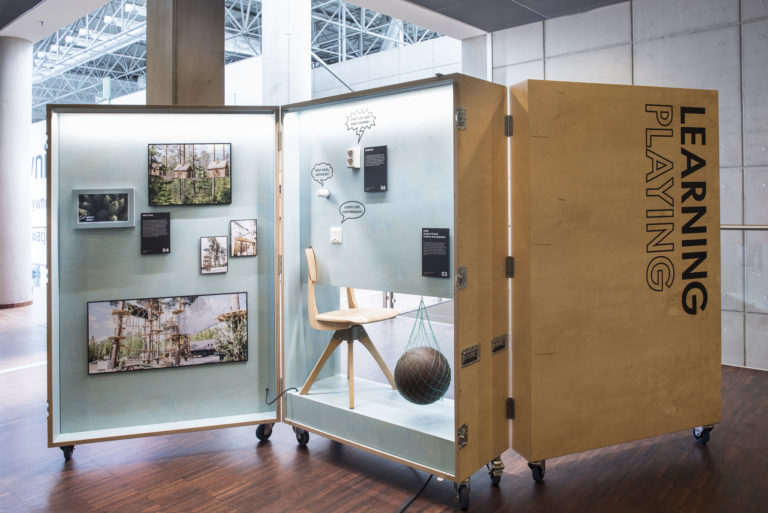
Children swap, borrow and upcycle their toys in a mobile exhibition that goes around Baltic Sea area thanks to the EcoDesign Circle project. Photo: Gdynia Design Days 2017 Bogna Kociumbas, Michal Szymonczyk
Towards new product-service systems
The interest in sustainable business models is high. It is relatively easy for start-ups and smaller companies to apply the new approaches. But what about bigger companies, often with open production lines, for whom it means a major transformation?
The challenge was accepted by a German furniture manufacturer, an Estonian manufacturer of watersports equipment, a Finnish real estate company and a Russian furniture manufacturer. All companies welcomed experts from design centers to create their roadmaps to more sustainable solutions and product-service models offering new services instead of new products. “We usually do not get that deep into the company’s work. The openness to host experts from other Baltic Sea region countries and to work together on the company’s circular approaches is what made it a particularly valuable experience,” says Jutta.
“The world got a bit bigger for me when I worked closely with the companies and see how things are done in other design centres in Finland or Estonia. That was the best part of this project. Now we will share this knowledge with our clients from several business sectors who are ready for a circular change,” she adds.
Circular work in progress
These experiences, together with the hands-on project toolkit: Ecodesign Learning Factory and Audit-Sprint tools serve now as an inspiration for other companies, design centers and agencies around the Baltic Sea region to help them proceed with circular transformation.
Reading along the lines of the latest circular economy action plan developed under the European Green Deal and proven by just two successful examples from the Baltic Sea region and Central Europe, it seems there is no way back from this path indeed.
Authors:
Dana Kascakova, Communication Manager at the Interreg CENTRAL EUROPE Programme.
Anna Galyga, Communication Officer at the Interreg Baltic Sea Region Programmme.
This article is part of a series on how transnational cooperation contributes to the EU Green Deal.
Article & image source: interreg.eu

Meet The German Ecodesign Award 2021 nominees
As Germany’s highest state award for ecological design, The German Ecodesign Award (Bundespreis Ecodesign) has announced this year’s nominees. In the four categories of product, service, concept and young talents, it awards submissions that meet the highest ecological and design quality requirements.
From circular jackets that are 100% disassembled and recycled, powder based re-fillable soaps and shampoos to bike kilometers turned into currency, zero-energy building, and numerous material and service innovations, these inspiring and innovative solutions pave the way to a circular future of products and services, designing out waste, pollution and excessive material extraction.
See the list of nominees here.
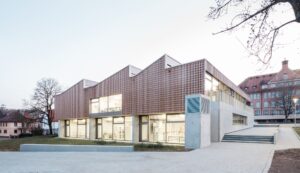
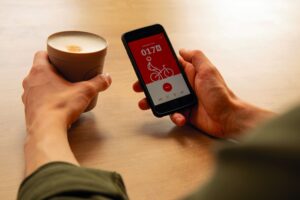
The German Ecodesign Award was offered for the first time in 2012 by the German Federal Environment Ministry, the German Environmental Agency and the International Design Center Berlin e.V. Since then it has been awarded annually.
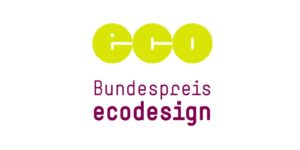
News & photo sources: bundespreis-ecodesign.de, sustainabilityguide.eu

Circular Design How To? session 5: Ecodesign tools in practice
In this season’s last How To? webinar we took a closer look at three circular design tools in practice – the EcoDesign Learning Factory, Audit, and Sprint, which were developed by the EcoDesign Circle international project team.
These tools offer methods and guidelines in becoming a circular design practitioner, assess your company’s ecodesign capabilities and create new business concepts in accordance with circular economy goals. Sharing their practical experience with the tools were Ronja Scholz (Fraunhofer IZM), Harri Moora (EKJA), Juha Kronqvist & Zeynep Falay von Flittner (Hellon), the session was moderated by Tapani Jokinen (Fraunhofer IZM).
See the recording of the webinar here:
//
Circular design How To? session is an open space for circular design professionals to discuss their work and experience. We avoid abstract concepts and discuss practical takeaways from circular design projects. The event is organised by Estonian Design Centre and held in cooperation with the EcoDesign Circle project and its partners.

Speed up the transition with Circular Design
Why is Circular Design so important? What is the EcoDesign Sprint 4.0?
On 29th of March 2021, Design Forum Finland, Estonian Design Centre and the Swedish Industrial Design Foundation (SVID) organized the webinar “Speed up transition with circular design” to cover the question: Why is circular design so important? In this article we take a closer look at what can be learnt from the EcoDesign Sprint 4.0 as applied in an Estonian enterprise Tahe Kayak.
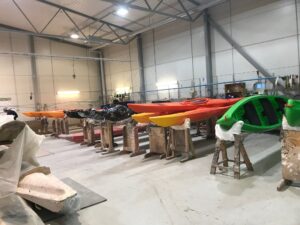
Tahe Kayak | ©Kaire Rannik, Estonian Design Centre
Design methods and design mindset can considerably contribute to creating a better functioning world and society. Complex problems can be grasped and solved. To understand customers and their needs, companies can use different design methods. Circular design is also a tool to develop products and services in a comprehensive way. Companies can use the strategic use of design to create sustainable growth and competitiveness by being better prepared for the challenges of both today and tomorrow.
The EcoDesign Sprint is a collaborative training programme for small and medium sized companies interested in transforming their businesses towards a circular economy. In addition, design agencies get to deepen their knowledge in circular economy concepts.
The Sprint is designed to improve operating models – linking design and principles of the circular economy and ensuring business competitiveness. The transformation to a circular economy is important across all sectors – once you have learned what impact it has on businesses, you can start to develop circular (growth) strategies. Unlike the traditional EcoDesign Sprint, the EcoDesign Sprint 4.0 is not only designed for products, but also for services.
Tahe Kayak – a manufacturer of canoes and kayaks
One of the three EcoDesign Sprint 4.0 pilots was carried out with the Estonian company Tahe Kayak. Tahe Kayak is a manufacturer of canoes and kayaks whose customers are mainly based in Scandinavia and Northern America. The company belongs to the Tahe Outdoors group. In the sprint, they decided to concentrate on the premium brand “Zegul”.
There are two different methods of manufacturing kayaks: rotation manufacturing and customer-built kayaks. The customer-built kayaks are mostly made of many different materials, including carbon fibre and other material blends – these make the kayaks stable and guarantee a long product life, but they are also harder to recycle. The goal of the sprint was to develop a strategy for reselling used kayaks and giving them a second life.
The two-day sprint was very intensive for the participants, but it was also a huge success. The Sprint was conducted by an Estonian environmental expert (Kaisa Hansen, innovation and business centre Mektory) and an Estonian service designer: Joel Kotsjuba (Velvet design agency).
Joel Kotsjuba summarised the ten most important key takeaways from his side:
- The EcoDesign Sprint provides a good baseline understanding of circular design theory, concept, strategies and methods for implementation.
- From the perspective of a successful transition into circularity, the EcoDesign Sprint holds a specific role in building momentum and finding key opportunities for focus in each company. While this does provide the most value, it won’t solve all the challenges.
- Engament of decision-makers during the Sprint preparations and in planning the follow-up activities are important for the succes of the Sprint outcome and further concept implementation. The follow-up work should be very well planned in order to get the maximum business value of it. The decision-makers’ involvement is important because certain decisions made during the Sprint will determine the potential of ideas both for the company and for circularity in general.
- The two days of the EcoDesign Sprint provide a good basis to discover opportunities for circular design implementation, but extra work is needed to develop an idea into a concept.
- The EcoDesign Sprint provides numerous ideas for improving and reinventing production, products, services and employee satisfaction. The combination of product and service development with circulat design knowledge is very valuable for the company.
- The evaluation and selection of initial ideas for testing are important to gauge their potential. The key to engagement and commitment from the decision-makers is the way these ideas are evaluated and selected.
- Establishing trust and good energy between facilitators and the participants of the Sprint is important. This is the basis from which good ideas start to flow and companies are willing to share their strenghts and challenges. This is also when the facilitators can provide the biggest impact for the company. Without trust it is very difficult to achieve anything meaningful.
- Engaging real customers to validate ideas provides huge benefits as it is real user validation and offers an external point of view. Circular solutions have to be attractive to the users, after all.
- Service design holds an important role in the circular design transition and should be considered in Sprints, because: a) the service-based approach is one of the key strategies into circularity; b) successful circular solutions should be user-tested and gain user attraction. Engaging service designers will contribute to that.
- Engaging designers to the Sprint helps to develop more mature circular ideas & concepts. The better prepared everybody is for the Sprint, the more you will get out of it. Different companies may need different expertise from design. Different designers – whether industrial or service designers – can have a very good impact in terms of how far the ideas will be developed within the Sprint.
Use tools to develop incremental steps towards your circular future (The Circular Design Toolkit)
Article source: https://disainikeskus.ee/designblog/speed-up-the-transition-with-circular-design

New ecodesign toolkit for designers
Learn about a radical, restorative & regenerative approach to business in the new circular design toolkit created by the international Ecodesign Circle.
Targeted to enterprises, startups, ecodesign experts and designers, the toolkit offers practical worksheets, which can be downloaded and used in ecodesign workshops and in circular business model development. The recources are also available as interactive Mural boards.
Use the tools to develop incremental steps towards your circular future.




